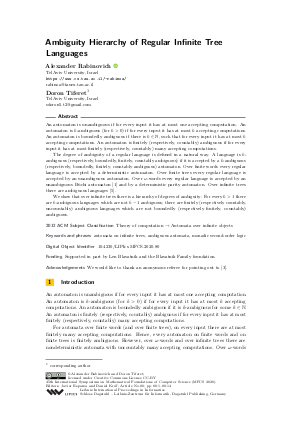LIPIcs.MFCS.2020.80.pdf
- Filesize: 0.51 MB
- 14 pages

 Creative Commons Attribution 3.0 Unported license
Creative Commons Attribution 3.0 Unported license











Feedback for Dagstuhl Publishing